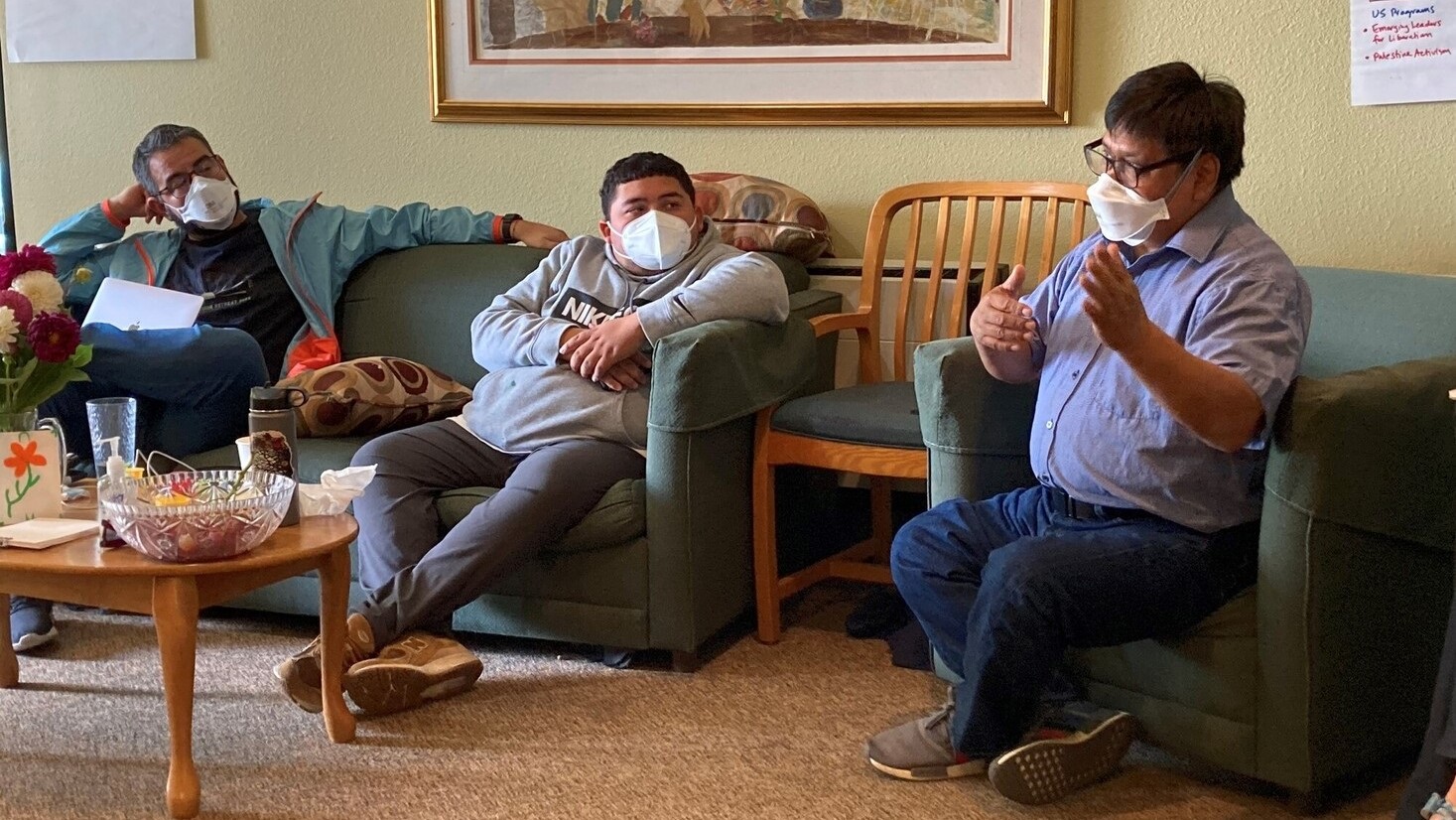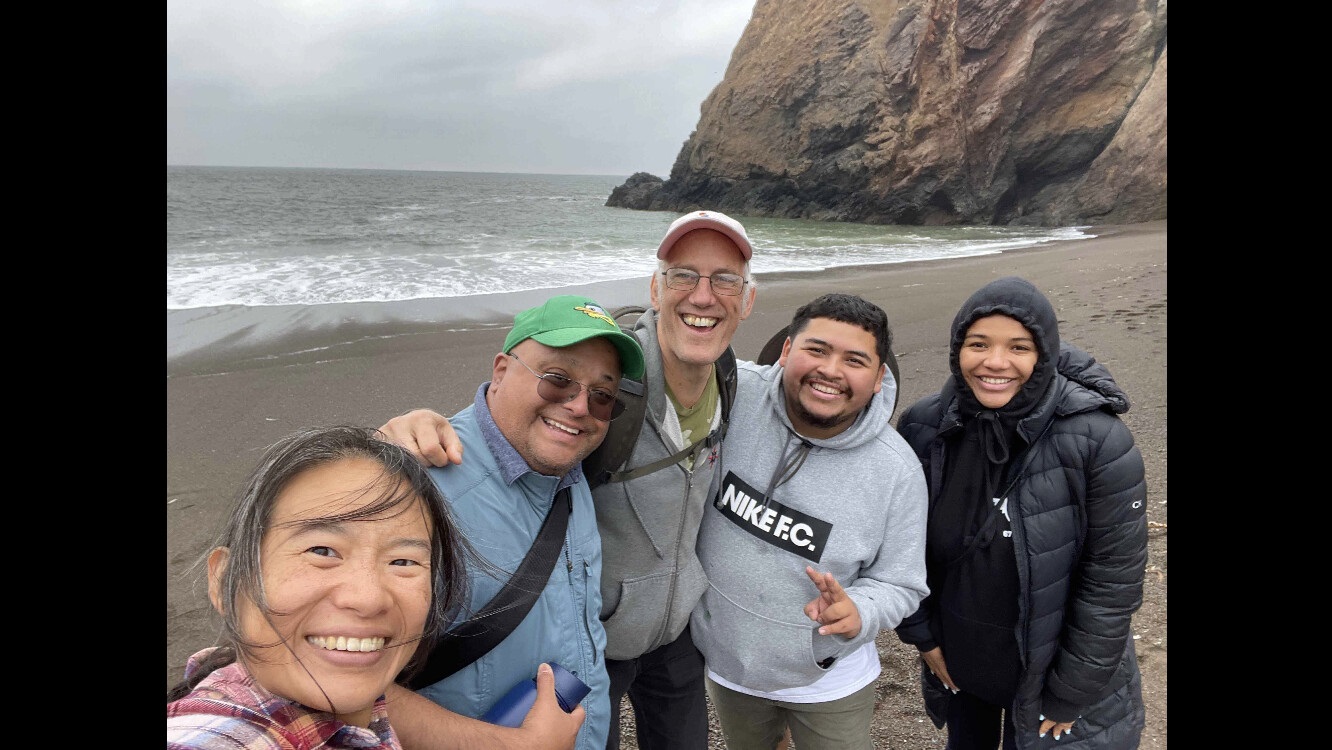
At an AFSC West Region staff retreat, Pedro Sosa (right) describes his popular education work.
For 20 years, AFSC’s Project Voice Program has accompanied immigrants in Oregon and Washington in affirming their human rights and impacting public policies that affect them. In this interview, Program Director Pedro Sosa and Program Associate Alonso Oliveros talk about why they are committed to working for immigrant rights.
Pedro Sosa: I do this work, first of all, because I’m an immigrant. I know firsthand the suffering. For many years, I was without documentation. I was arrested by Immigration and detained. I know how it feels to be in detention.
That’s one of the reasons I do this kind of work. Also, I had been active in Guatemala in the Indigenous movement. And that’s why they kicked me out of Guatemala.
I’d also been involved in the indigenous movement in Mexico. I came to the US and started organizing day laborers, the workers who gather at the street corners. They include a lot of indigenous people, also.
That’s why I feel very connected with the issue, from my own experience of 25 years of struggling, fighting in the court. Finally I got permanent residency. So that’s a personal experience I have in the struggle.
I know there are many people fighting for justice, for recognition of the work we provide to this country every day.
That’s why I do this. Because I’m an immigrant and I know the issue. For many years, even without papers, I was organizing the community to chase La Migra. I couldn’t chase them, but I could organize the community to do the things I couldn’t. That was interesting doing that kind of work.
Sometimes I challenged myself to be in the moment when La Migra was doing a raid. I was afraid when I got to one. We mobilized our rapid response team. It’s a long story, but when I got there, I saw lots of Migra and Oregon police and lots of media. I was very afraid when I saw the lines of Migration.
But I couldn’t do anything. I thought if I ran, they’d chase me. I just continued to walk. Even as my feet were shaking. I was walking in the middle of these officers. At the end of the two lines of officers was a media person from The Oregonian. She said, “Pedro!” That made Migration pay attention to her.
It was a challenge for me. And I said, if they catch me, this is the end of my story in the US. But fortunately, someone knew me and called my name.

Alonso Oliveros (second from left) enjoys a hike to the beach with other AFSC staff. Jennifer Tu
Alonso Oliveros: I grew up as the son of immigrants from Mexico. I do this work to give voice to the voiceless. To use my privilege to confront all the trauma and brutality the immigrant community has suffered. To empower them.
Learning from Pedro, the way he does popular education, it’s transformative for community members in how he does these workshops. Here you see all the internalized trauma they hold. And for him to provide them the tools for self-empowerment, for self-determination.
To say no, just because you’re treated with second-class status, you have human rights and dignity. It opens up their eyes and gives their spirits a boost. It’s almost therapeutic. All this time they’ve been living in a golden cage (that’s from a song) of being surrounded by such wealth, but also living in fear of deportation. That takes such a huge toll on their mental health.
So giving them that empowerment to say, “Wow, I’m a person. I can be treated with respect and dignity.” It really lifts up their spirit. It gives them rise to say hey, with all the suffering I’ve been through, I can help my community fight all these injustices. It’s spiritual in a sense.